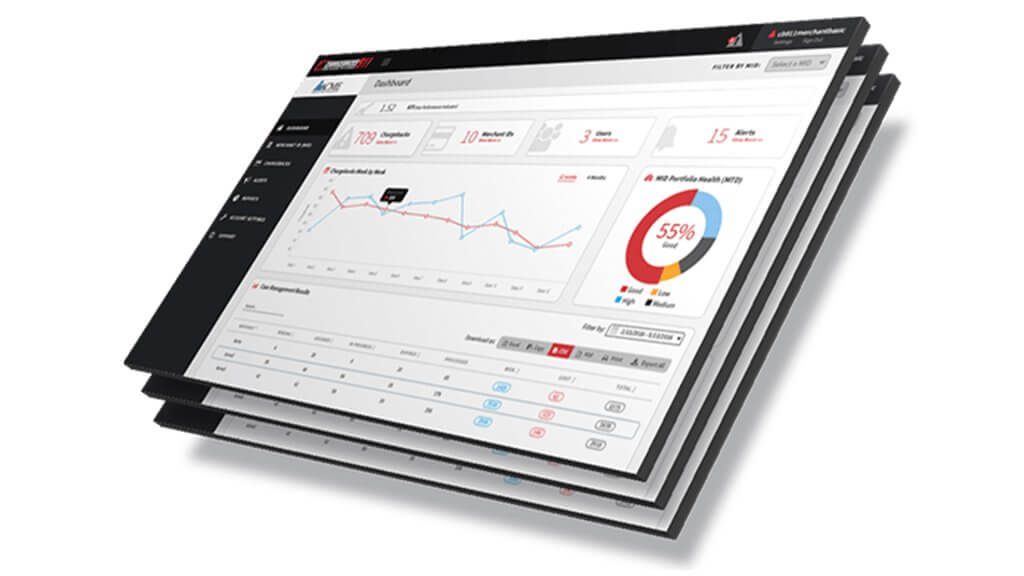
Banking on DevOps
Andy Cureton, Founder and Managing Director, ECS Digital, looks at how, in a competitive environment, banks and other organisations can use the latest IT and business methodologies to modernise their IT systems to meet customer expectations and comply with regulations.
It wouldn’t be an exaggeration to say that the banking sector, like many industries, is now more competitive than ever before. There has never been a more difficult time for the big banks in particular, with the disruption from digital innovation hitting everyone hard. Time is running out and, to stay relevant, today’s big banks need to embrace agile methodologies across their entire organisation.
Digital transformation in the banking sector has a unique set of tough challenges, both external and internal. Along with regulatory changes such as the General Data Protection Regulation (GDPR) and Open Banking, there is increasing external pressure from FinTechs, challenger banks and Google, Apple, Facebook and Amazon (GAFA), who have innovation hardwired into their culture and are more customer centric by nature – exactly where many of the more traditional banks fail.
All this set against the background of acquisitions, meaning there are now, in effect, four big banks in the UK. Customers may think they are banking with one bank but are in fact sitting on the systems of another. Take for example TSB, whose customers up until recently have been using Lloyds Banking Group’s core banking systems. This leaves banks with complex ecosystems full of legacy systems which as of now, no bank has completely got to grips with… Add issues of dealing with both structured and unstructured data, it is no wonder changing and updating systems is a complex problem to solve.
DevOps – an approach to IT where software developers and IT operations combine their skills and responsibilities to produce software and infrastructure services rapidly, frequently and reliably by standardising and automating processes – can help organisations such as banks to address the issues they face. These challenges include overhauling and modernising legacy systems without additional risk and addressing the thorny issue of testing. To remain relevant, organisations need to change their culture one step at a time. Challenger banks are leap-frogging old-fashioned ways of working in favour of agile practices that promote innovation. GAFA have high-performing Digital/DevOps-native cultures with levels of innovation, efficiency and customer centricity that most organisations can only dream of. But the good news is that any organisation can incorporate these ways of working into their culture and harness the power of DevOps.
The Myth of DevOps
It’s a myth that legacy issues mean DevOps practices can’t be applied, that the only solution is to rearchitect and replace. Technologies such as containerisation and data virtualisation, coupled with automation, can improve the speed and quality of change in existing systems, whilst reducing reliance on increasingly scarce and expensive specialists. The concept of containerisation essentially allows virtual instances to share a single host operating system and relevant binaries, libraries or drivers. Data virtualisation, on the other hand, provides the ability to create multiple virtual copies of a physical data set without the requirement for the same physical storage. These virtual copies can be created very quickly and then used independently by environments for testing and even production, with only the differences to the base data set being stored. Functionality such as bookmarking and data masking further enhance the performance and storage benefits.
Changing mind-sets, organisational culture and building confidence in new ways of working is essential to getting the most value from DevOps adoption. DevOps provides a structured way of working to improve management frameworks and reduce a product’s time to market, taking it from several months to perhaps weeks. Additionally, it can help to strengthen governance and regulatory compliance across the business whilst increasing innovation and agility.
While many banks intend to adopt new technologies, the execution is often mixed. The first step is accepting that the world of finance is changing and there is a better, different way of doing things. You are only as fast as your slowest link. Any system that is slow and process-heavy will hold back an organisation from moving at the pace their customers expect – and indeed demand – in today’s 24/7 world. If such systems are not improved they limit innovation and become a risk in themselves, as faster, more agile competitors are appearing across the finance sector.
A Better, Different Way
Testing has a very important role within the banking sector; ensuring continuous testing is taking place makes regulatory compliance easier to achieve and maintain. The introduction of automation in the testing process can actually reduce the risk of change by removing the opportunity for human error and increasing the achievable test coverage.
Getting the testing strategy right can help make the transformational changes more achievable, by reducing both cost and time taken to deliver quality software. Testing in banks is done thoroughly, but it needs to happen earlier in the Software Development Life Cycle, a concept known as “Shifting left”. Testing is typically manual, time- consuming and error-prone. This creates bottlenecks and slows down the flow of change, depleting both the time and resources available for innovation.
Automation brings additional benefits. It speeds up the provisioning of environments and data, and also delivers cost savings. Inconsistent and over-provisioned environments can result in unpredictable outages. The cost in downtime and testers’ time to fix environments is considerable when calculated over the course of a year with multiple instances, each taking two to three days to fix. Configuration management tools such as Ansible and Puppet give businesses increased control over downtime costs by using automation to ensure environments are fit for purpose; Containers provide the ability to instantly replace environments that are out of sync.
DevOps brings with it a licence to fail – but fail fast – something which is essential for real innovation to exist – with processes in place to spot, learn from and remedy failure quickly and early. In this way, teams are encouraged to be proactive, accepting and understanding of their impact on each decision or change in a blame-free environment. Failure demonstrates that boundaries are being tested and are an opportunity to learn.
The Journey to Increase Innovation and Agility
Banks are slowly changing their organisational structures and operating models to bring the business and IT closer together – although such is the risk-averse nature of the industry, that an aversion to quick change is almost built in. But it doesn’t have to be this way – DevOps is not risky in any way when properly introduced. In fact, getting the culture and working methodologies right can help to strengthen governance and regulatory compliance across the business whilst increasing innovation and agility.
Ultimately, DevOps adoption is a journey. Many organisations don’t have a blank sheet of paper to start from like challenger banks, FinTechs and GAFA. So, unless they build separately on the side, they’ll always have a heritage challenge. That challenge does, however, come with tried and tested operational processes – which typically demonstrate greater resilience and availability than their nimbler competition. This approach is being pioneered by Scandinavian bank, Nordic Nous, who are using new technology to build a new customer bank alongside the existing bank. Over the past decade, they have thrown away their legacy technologies and invested heavily in the right frameworks to adopt agile practices. Combining heritage with the agility, quality and compliance benefits of DevOps gives banks formidable capability with which to compete in the digital era.
For more information about implementing DevOps the ECS Digital whitepaper ‘Why bank on DevOps’ is available for download here.
Company website: https://www.ecs-digital.co.uk/





















